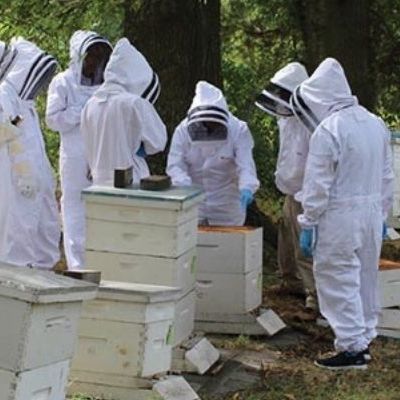The humble honeybee is essential to the pollination of flowering plants, that in turn produce the vegetables, fruits, nuts, and seeds that humans, wildlife and farm animals all depend on for food – making them an integral part of our ongoing food security.
Which is why a group of veterinarians in the United States have formed the Honey Bee Veterinary Consortium (HBVC), a not-for-profit organisation with the mission of training veterinarians in honeybee medicine.
In a report by the American Veterinary Medicine Association (AVMA), former president of the consortium Dr Britteny Kyle said that beekeepers were slowly coming to terms with having to involve veterinarians in their apiaries, with most seeing veterinarians as a means to acquiring antimicrobials for their hives. While others were starting to recognise that veterinarians offered more than just a prescription.
“Some members of the industry understand that veterinarians are trained in biosecurity, disease management, herd health, and toxicology, and we can help improve the health of their colonies,” said Dr Kyle.
A growing number of resources are now available for veterinarians interested in learning about honeybee medicine, including on the HBVC website and the AVMA’s handbook ‘Honey Bees: A Guide for Veterinarians’. Full story: AVMA
Image: Vets attending an AVMA honeybee lab event, source: Dr Cynthia Faux/AVMA

